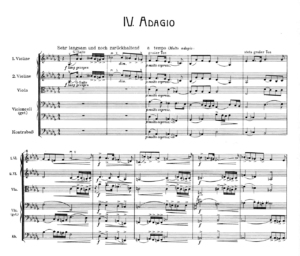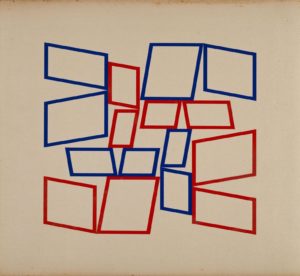In an advertisement, the only intention that matters is to sell a product. All manner of decisions can and do saturate an advertising image, but these are subordinate to the purpose (Zweck) of selling the product. In a successful work of art, all kinds of decisions are subordinate to a larger intention as well; but that intention is analytically identical with the meaning (Zweckmäßigkeit) of the work, so it makes sense to speak of the work as a whole as saturated with intention. As we saw, art-commodities may well bear the marks of industrial processes. A work of art may, on the other hand, choose to exhibit them, which is a different matter altogether. We can tell the difference between bearing marks and exhibiting marks because works of art tell us how to tell the difference, each time.








